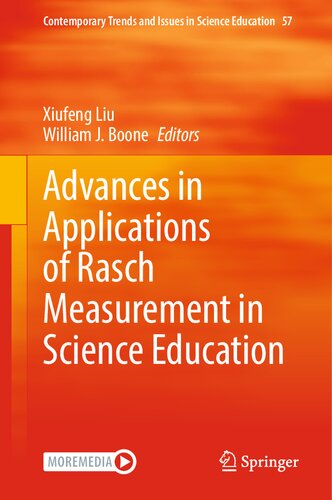

Most ebook files are in PDF format, so you can easily read them using various software such as Foxit Reader or directly on the Google Chrome browser.
Some ebook files are released by publishers in other formats such as .awz, .mobi, .epub, .fb2, etc. You may need to install specific software to read these formats on mobile/PC, such as Calibre.
Please read the tutorial at this link: https://ebookbell.com/faq
We offer FREE conversion to the popular formats you request; however, this may take some time. Therefore, right after payment, please email us, and we will try to provide the service as quickly as possible.
For some exceptional file formats or broken links (if any), please refrain from opening any disputes. Instead, email us first, and we will try to assist within a maximum of 6 hours.
EbookBell Team

4.4
62 reviewsThis edited volume presents latest development in applications of Rasch measurement in science education. It includes a conceptual introduction chapter and a set of individual chapters. The introductory chapter reviews published studies applying Rasch measurement in the field of science education and identify important principles of Rasch measurement and best practices in applications of Rasch measurement in science education. The individual chapters, contributed by authors from Canada, China, Germany, Philippines and the USA, cover a variety of current topics on measurement concerning science conceptual understanding, scientific argumentation, scientific reasoning, three-dimensional learning, knowledge-in-use and cross-cutting concepts of the Next Generation Science Standards, medical education learning experiences, machine-scoring bias, formative assessment, and teacher knowledge of argument. There are additional chapters on advances in Rasch analysis techniques and technology including R, Bayesian estimation, comparison between joint maximum likelihood (JML) and marginal maximum likelihood (MML) estimations on model-data-fit, and enhancement to Rasch models by Cognitive Diagnostic Models and Latent Class Analysis. The volume provides readers who are new and experienced in applying Rasch measurement with advanced and exemplary applications in the forefront of various areas of science education research.